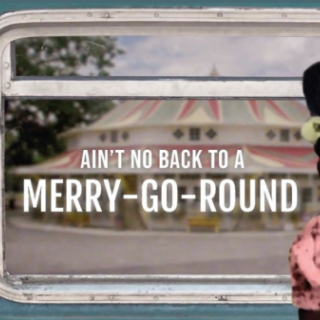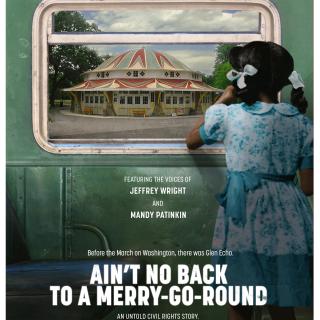Advertisement
Jason Bourne is the fifth installment in the Bourne film franchise derived from Robert Ludlum’s espionage novels that began with 2002’s The Bourne Identity. Ludlum’s original Bourne trilogy began in 1980 but didn’t reach the big screen until shortly after 9/11, when the CIA and other U.S. intelligence agencies turned to what author Jane Mayer called The Dark Side. The latest sequel continues the Bourne formula of nonstop action combined with criticism of the Central Intelligence Agency and is the fourth movie starring Matt Damon as the title character and the series’ third feature helmed by British director Paul Greengrass, starting with 2004’s The Bourne Supremacy.
In 2012’s Tony Gilroy-directed The Bourne Legacy, Jeremy Renner (star of 2008’s Iraq War drama The Hurt Locker)played Aaron Cross. But now, Damon is back as the troubled amnesiac groomed to be a member of a highly trained cadre of killer elite doing the CIA’s deadly, nefarious bidding around the world. Sort of “Hawaii Five-O’ on steroids, unbound by trivialities such as, oh, you know, civil liberties, ethics and a little something called the U.S. Constitution.
There’s only one fly in this ominous assassin’s ointment: Bourne (who was born David Webb) has a conscience, which may explain his amnesia. He’s probably repressing all of the god-awful things he was deployed to do for the CIA, a lethal errand boy for what Pres. Lyndon Johnson rather pithily described as “Murder Inc.”
Jason Bourne reveals more details about the character’s mysterious past, with his CIA analyst father Richard Webb portrayed by character actor Gregg Henry, who as Hollis Doyle on TV’s White House drama Scandal is no stranger to covert operations. Julia Stiles is also back for her fourth outing as disaffected CIA agent Nicky Parsons. This will interest aficionados of the Bourne franchise, along with its constant barrage of bombs, bullets and automobile crashes.
However, what’s arguably most interesting about Jason Bourne is its up-to-the-minute topicality, ripping those proverbial headlines right out of the front pages (or websites, as the case may be a la The Intercept) - or, some may feel, ripping them off. [PLOT SPOILER ALERT:]The film reveals the collusion between the CIA and seamy Simi Valley types as part and parcel of the Agency’s surveillance state campaign to snoop on everyone. Riz Ahmed (of 2014’s superb Nightcrawler) plays digital tycoon Aaron Kalloor, who’s playing footsy with those spies who hate us. (Interestingly, Gregg Henry also had a recurring role on the CSI: Cyber television series.)
[EVEN MORE PLOT SPOILERS:]And just as uncannily as Star Trek Beyond’s reflecting of those cop killings in Dallas and Baton Rouge, et al, by disgruntled Black ex-soldiers shortly before that otherwise tired retread’s release, Jason Bourne deals with cyber-attacks while premiering just days after WikiLeaks revealed that Democratic National Committee emails were hacked, disclosing the fact that the supposedly impartial DNC played favorites, tipping the scales in favor of Clinton over Sanders.
(BTW, the allegations that the Ruskies were behind the hacking is a desperate attempt to dredge up an ancient Cold War canard in order to distract attention from what those exposed emails actually reveal. Notice that the content and authenticity of those messages is not being disputed - just how truth teller Julian Assange got his mitts on them at the Ecuadorian embassy in London. Sure, the Gusano-loving, anti-Castro, pro embargo of Cuba Debbie Wasserman Schultz and her DNC underlings were “neutral” - the same way those Swiss bankers were when they stored Hitler’s gold in Zurich bank vaults. And a note to the Sandernistas: The St. Bernard - who ran as a Democrat and admitted all along that he’d back the Democratic candidate (weren’t you listening?) - turned out to be a sheepdog, invoking socialist rhetoric in order to herd more voters for Hillary, safely stuck and imprisoned inside the fold of the Democratic Party, which has yet again proven itself to be the graveyard of progressive ideas.)
The most interesting thing about the Bourne saga is that in it, like that old “good cop/bad cop” routine from 1971’s The French Connection, Hollywood has played out the “good CIA versus the bad CIA” in our post-9/11 motion picture public discourse. The clearest example of this was in 2012, with the “bad CIA” of Zero Dark Thirty that water boards and tortures suspects in various other ways vs. the “good CIA” of Argo, that carries out covert ops to rescue American hostages from Iranian zealots. (Of course, masquerading as mass entertainment, BOTH films were propaganda pictures - Argo never delineates the CIA’s role in Iran, from the coup that brought the Shah to power to the torture performed by his regime’s secret police. And lest we forget, Argo is the only movie that was ever awarded the Best Picture Oscar from the White House, where surrounded by members of the armed forces, the First Lady via telecast opened the Academy’s envelop and announced the winner in a propagandistic move Joseph Goebbels would have envied.)
In a similar way the “good vs. bad” CIA was also played out in the Bourne series, with Joan Allen playing Pamela Landy, who opposes the excesses of her counterparts, such as Noah Vosen (David Strathairn, who also depicted my namesake, legendary broadcast journalist Edward R. Murrow, in 2005’s Good Night, and Good Luck) in 2007’s The Bourne Ultimatum, the overzealous supporter of the Company’s elite assassin program that gave birth to Bourne. That movie ends with Landy testifying about CIA excessive use of unconstitutional force, et al, before Congress.
Earlier incarnations of the “bad CIA” included Chris Cooper as Conklin and Brian Cox as Ward Abbott in The Bourne Identity.Cox has a cameo, probably as a flashback, in the current iteration, although now, in Jason Bourne, CIA Director Robert Dewey is the heavy, backing heavy-handed, extra-constitutional foul play, such as assassination and is portrayed by Tommy Lee Jones. (Ironically, in some scenes the aging Jones is the spitting image of the president we’d all love to spit upon, the original “law and order” candidate who was a criminal, Tricky Dick - which is ironic as Joan Allen played his wife Pat in Oliver Stone’s 1995 biopic, Nixon.)
Now, Dewey’s counterpart advocating for a more “humane” CIA is Agency cyber whiz kid, Heather Lee (Swedish actress Alicia Vikander, who is no stranger to thrillers, having co-starred in the 2013 WikiLeaks drama The Fifth Estate, 2015’s Ex Machina plus the truly dreadful The Man From U.N.C.L.E., which is one of those god awful flicks that can turn film reviewing into a hardship job). It’s interesting to note that Jason’s Argonauts - the good guys in the Bourne pictures - tend to be girls, starting with Franka Potente as Marie in the franchise’s first outing and in 2004’s The Bourne Supremacy.
As the title character struggles to be liberated from his espionage peonage in Jason Bourne, like a demon Damon deploys his deadly skills with devastating results. The relentless Jason Bourne is carpeted with wall-to-wall violence, and theatergoers who love special effects and amped up action will probably be entertained by it while munching on their popcorn - they may even momentarily be distracted from texting-while-viewing. There is a car chase to end all car chases - which is to today’s cinema what The French Connection was to the 1970s’ screen - as Bourne and his enemies wreak havoc and mayhem across Las Vegas, which is redolent with representations of America’s over-the-top greed, materialism and capitalism gone berserk-o, not unlike the agents battling it out.
Paul Greengrass is a gifted filmmaker who made 1998’s The Theory of Flight, 2002’s Bloody Sunday (about the struggle for Irish rights) and 2006’s airborne United 93 (an early look at a 9/11 hijacking many deemed “too soon”), as well as the Bourne features. But Jason’s 123 minutes of nearly nonstop violence is so over the top that it becomes mind numbing and is like watching a porn movie with incessant sex for two hours. Even with the most attractive adult stars, inventive sexual techniques, et al, after about an hour or so one prays for a deliveryman to just deliver the pizza - and keep his clothes on.
Having said that, what redeems Jason Bourne is its critique of the CIA. I presume the giveaway that this is not just more pro-CIA agitprop is that there are no shots inside of the Agency’s Langley, Virginia HQ (there are, however, exterior long shots and/or aerials), which is only “rewarded” to filmmakers after their shooting scripts are submissively submitted to the CIA to vet. The way it works is if there are any offending scenes or lines that may hurt the Company’s image (and boohoo its feelings!) and its chances to lobby Congress for ever bigger budgets, they are removed. Another telling factor is that as far as I could determine, there was no CIA “advisor” or “consultant” listed in the credits. So minus these intel watchdogs and those coveted interior shots at Langley, I am assuming this film was shot independently, minus direct CIA influence, hence its ability to criticize Agency abuses.
It’s telling that when former Director of Central Intelligence and ex-Defense Secretary Leon Panetta delivered his speech at the Democratic Convention, he was booed. Because the truth is, there is no “good CIA” and this bureau of dirty tricks tasked with enforcing Washington’s imperial policies should be immediately demolished into, as JFK put it, “1,000 pieces.” The only good CIA is no CIA. But until that fine day, ticket buyers can expect yet another sequel to the seemingly never ending Bourne series.



